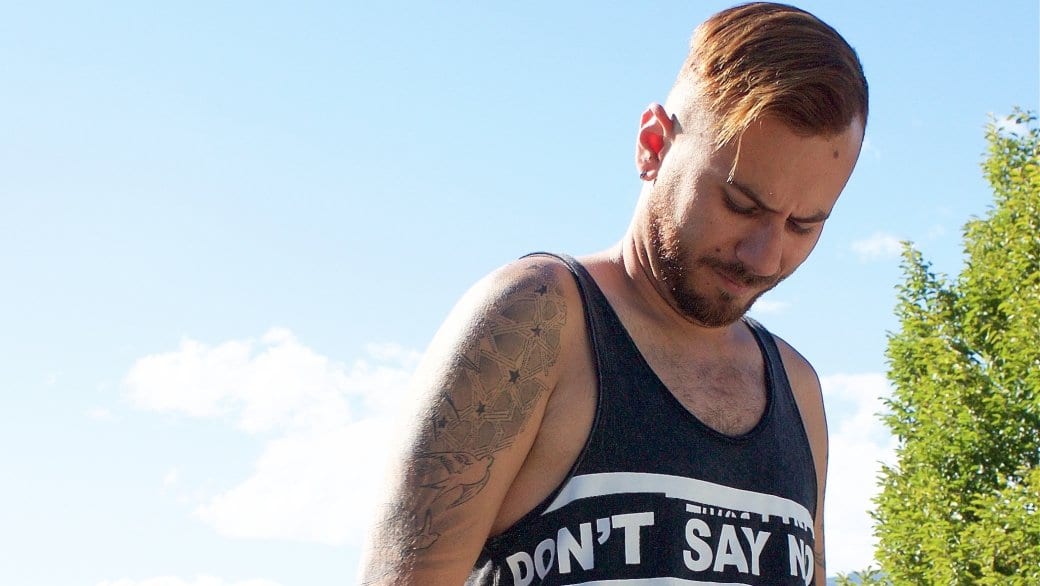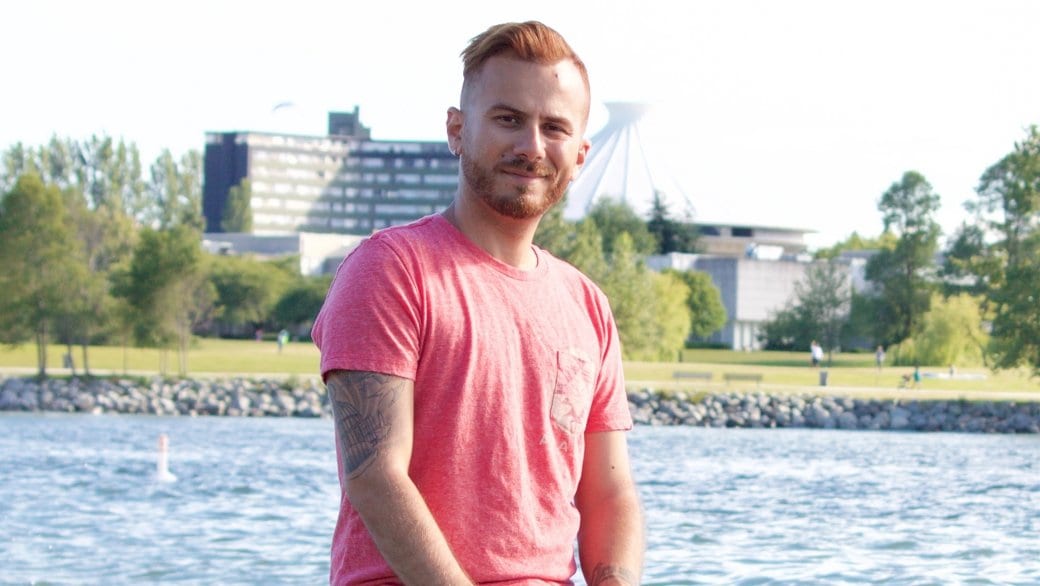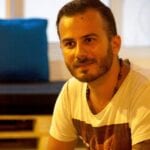
Credit: Mike Carter/Daily Xtra
As a person who was arrested by the police back in Syria in 2012 due to my LGBT activism and my sexual orientation, I understand how the presence of police forces might be triggering, upsetting and excluding for some people of colour.
It’s uncontrollable to me: I still shiver every time I hear a police siren; I still feel a bit uncomfortable when I have to interact with a police officer.
That’s why, while I might not completely understand the experience of black folks, I appreciate and acknowledge the requests from Black Lives Matter Vancouver, and the other organizations supporting them, as they try to make the Pride parade accessible to its primary target audience: all LGBT-identified people.
Intersectionality works in mysterious ways: the challenges faced by queer and trans people of colour, like myself, are many. We belong to the larger people of colour community and face the challenges of that marginalized community; we also are queer and trans people and face the challenges of that community. Finally, and most importantly, being both of the above, we face unique challenges of our own.
When it comes to policing in general, I believe these challenges include over-policing in socio-economically racialized areas, a lack of mandatory LGBT-competency training for police officers, and some of the bad seeds in police forces that continue to bring homophobia and transphobia to their policing.
However, I was upset to hear that some organizations are calling for a boycott of this year’s Pride parade in Vancouver, despite the fact that BLM didn’t call for a boycott themselves.
I think boycotting as a solution takes away my ability to criticize and build. I see that we have been granted in this beautiful country of Canada the right of free speech, and that allows us to participate in one of the most beautiful celebrations of our diversity and inclusion, while also constructively criticizing the institution, and demanding more support for our marginalized communities.
As for the police, I should recognize my personal experience. I see where I came from and where I am right now.
I came from Syria: a police state where every action I took was monitored. Police forces there are militarized, unsupervised and brutal; they use violence and intimidation to maintain the status quo.
I came to Vancouver: where the Vancouver Police Department has an LGBT advisory committee and a liaison to the community. I came to Vancouver where the police protected me from a person that meant to harm me, and supported me through my first year. I was hugged by a beautiful police officer a month after I arrived, when she heard me talking to my friend about being a Syrian refugee.
I believe that we — as a community — need peacekeepers to help us keep each other safe. I hope one day we will see community-based peacekeepers, trained to use their tools and knowledge to deal with any situation regarding LGBT folks. I hope one day we will see less imprisonment and more early interventions with support for people of colour communities. And I hope we’ll see stronger reactions against police officers who exhibit homophobia or transphobia towards any of our communities’ members.
Today, I faced questions from folks who know my stand on supporting queer and trans people of colour, asking me where I stand in this conversation. I struggled to find answers. Honestly, I want to be fair to both sides.
I want to be fair to the Black Lives Matter folks and the other organizations. I understand why they feel the need to raise this issue and bring it to light.
I also want to be fair to the Vancouver Police Department and the progress they’ve made over the past few years, witnessed by many Vancouverites.
But then I realized the only thing I can do is be fair to myself, and to my own personal experience.
My personal experience allows me to both recognize the experiences raised by Black Lives Matter, and to see the leaps the VPD has taken, especially compared to the brutality I witnessed back home.
That’s why, as a grand marshal of this year’s Vancouver Pride parade, I will march alongside the police, and take advantage of my position to advocate for more inclusion and support for my community within its forces.
I’m marching as a Syrian refugee who is proud of coming to Canada and finding a safe home here.
I don’t want to see this conflict as two sides starkly divided, especially since neither Black Lives Matter nor the VPD seem to characterize it as such. There is a spectrum here of nuanced stances and positions that stretches between the two sides. I choose to stand in the middle, and to use my position as a grand marshal to call for inclusion, with constructive criticism to both sides.
Ahmed Danny Ramadan writes a biweekly column for Daily Xtra.


 Why you can trust Xtra
Why you can trust Xtra


